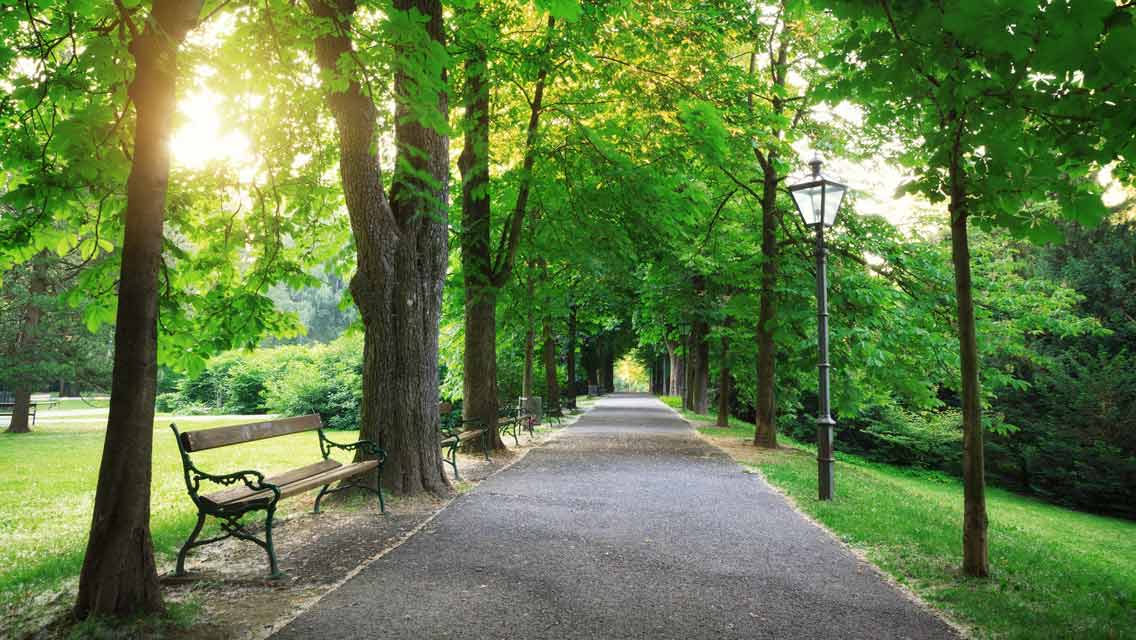Even quasi-hopeful news is a rarity on the Alzheimer’s front these days, what with the variety of risk factors rising and Big Pharma as vexed as the rest of us, so I had to smile last week when I happened upon research suggesting that all we have to do to slow the onslaught of dementia is live among the trees.
Researchers at the Boston University School of Public Health aren’t recommending we abandon the comforts of modern life for a cabin in the woods, but they do offer some intriguing evidence that those who happen to reside in midlife among more “residential greenery” — parks and woods and the like —tend to suffer cognitive decline at a slower rate than their counterparts living in less bucolic surroundings.
The benefits were particularly notable for people living among greenery in poorer neighborhoods and among those most genetically predisposed to developing Alzheimer’s. Cognitive decline among carriers of the dreaded APOE4 gene living in greener locales occurred even more slowly than those who did not carry the gene, researchers found. And because the disease typically begins to develop decades before symptoms appear, they believe their findings could guide people to take protective measures long before the disease takes hold.
“Our results are important because they shed light into the cognitive benefits of increasing green-space exposure at a population level, particularly among vulnerable subgroups of the population,” explains lead study author Marcia Pescador Jimenez, PhD, an assistant professor of epidemiology, in a statement released by the university.
She and her team analyzed geographic and cognitive data from the Nurses’ Health Study involving nearly 17,000 people 70 years old and older between 1995 and 2008. They used a satellite-image metric to assess green space around each participant’s home nine years prior to conducting a series of cognitive tests for each individual during the following six years.
Researchers estimated that residing among sufficient greenery may slow an individual’s annual rate of cognitive decline by about eight months.
The results, published in the journal Environmental Health Perspectives, build on earlier, smaller studies showing an association between access to green space and improved mental health. Boost your mental health, research has shown, and you’re less likely to descend into dementia. “Greenness has been consistently linked to lower levels of depression,” Pescador Jimenez writes. “In addition, depression has been documented to be an important modifiable risk factor of dementia.”
So, just as giving up smoking or lowering your blood pressure or cutting back on your alcohol consumption may help you delay — or avoid altogether — the onset of Alzheimer’s, Pescador Jimenez and her colleagues believe settling into lush surroundings may also do the trick.
More research is needed, of course, so before you consider pulling up stakes and relocating to more bucolic terrain, you might note that researchers did not take into account factors such as neighborhood amenities and crime rate, or to what extent participants actually spent time in nearby parks and other green spaces.
“We acknowledge that it is potentially possible that reverse causation explains some of the effects observed,” she admits.
Still, I’ll take any signs of hope I can find in my quest to delay what sometimes seems an inevitable descent into some degree of absentmindedness. I seem to recall, for instance, that My Lovely Wife and I moved our family when we were in our 40s from a mostly concrete landscape to what by comparison seemed like an arboreal paradise. That should count for something, right?
If I remember correctly, we even planted some shrubs.




